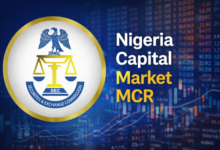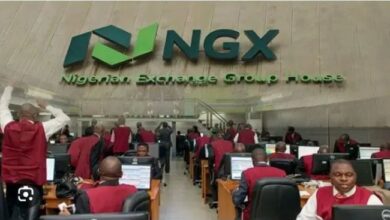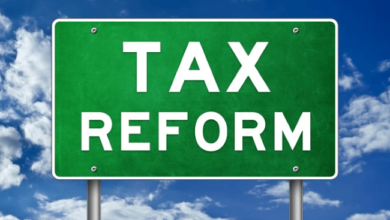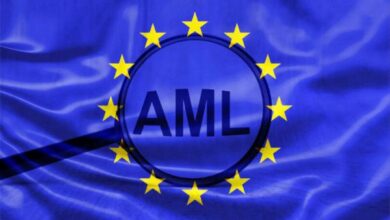Ponzi Schemes: No Investment Scheme is legitimate without SEC Registration
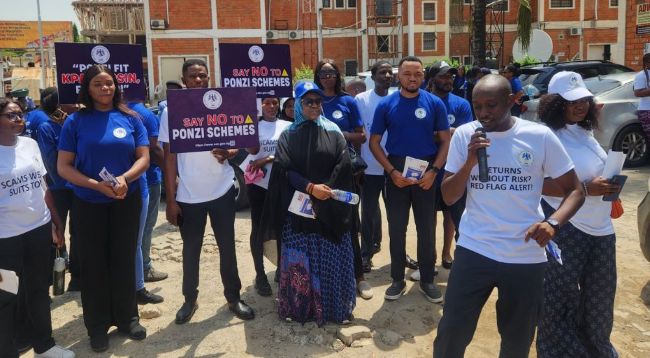
In a decisive push to clamp down on fraudulent investment operations threatening Nigeria’s financial ecosystem, the Securities and Exchange Commission (SEC) has issued a stern warning: Any investment scheme not registered with SEC is not legally recognised—regardless of its Corporate Affairs Commission (CAC) or EFCC credentials.
This strong message came from Dr. Emomotimi Agama, the Director-General of the SEC, during a public awareness campaign at Garki Market, Abuja—a strategic grassroots move to bring regulatory education directly to the people most vulnerable to scams.
“It is disheartening that some Nigerians and foreign entities have turned Ponzi schemes into a business model. But the government will no longer fold its arms,” said Dr. Agama, declaring open season on what he described as an economic cancer undermining investor confidence and national prosperity.
Beyond CAC & EFCC: What Legitimacy in Nigeria’s Investment Ecosystem Really Means
Dr. Agama’s comments are a reality check for thousands of Nigerians who assume that a CAC certificate or a vague “EFCC endorsement” equates to regulatory approval. The SEC is the only legal authority in Nigeria empowered to license, monitor, and sanction capital market operators and investment vehicles.
This clarification on SEC registration is crucial, especially as fraudulent firms often tout CAC incorporation numbers and EFCC trainings as smokescreens to deceive unsuspecting investors—many of whom are desperate for alternative income streams amid rising inflation and economic hardship.
New Legal Teeth: Jail Time and Multi-Million Naira Fines for Ponzi Promoters
The SEC’s crackdown is backed by recent reforms. The Investments and Securities Act 2023, signed into law by President Bola Tinubu, has granted the commission stronger enforcement powers. Notably, it prescribes a ₦20 million fine or up to 10 years imprisonment—or both—for individuals or firms found guilty of running Ponzi or pyramid schemes.
“We now have the tools—and the political backing—to clean house,” Agama declared, stressing that the SEC’s new regime would be proactive, not just punitive.
Investor Education at the Heart of SEC’s Anti-Fraud Drive
The campaign in Abuja is part of a broader nationwide financial literacy push. SEC officials, including Tope Onwionoko, Assistant Director of Enforcement, revealed that the regulator will expand its anti-Ponzi messaging to churches, mosques, hospitals, schools, military barracks, and rural markets.
“We are targeting the heart of Nigeria’s informal economy because that’s where these fraudsters are harvesting the most victims,” said Onwionoko.
From “investment training seminars” to WhatsApp-based “crypto trading circles,” fraudsters have evolved with the times. SEC’s new approach will involve digital surveillance, multilingual campaigns, and verification tools that allow investors to check the regulatory status of investment schemes in real-time.
BRANDECONOMY ANALYSIS: Why Ponzi Schemes Thrive—and What Must Change
Ponzi schemes are not new, but their persistence in Nigeria reveals deeper structural and psychological gaps:
- Low financial literacy, especially in semi-urban and rural areas, makes Nigerians easy prey.
- Weak enforcement in the past gave fraudsters a long runway.
- The quest for quick wealth amid economic uncertainty drives irrational investment behaviour.
- Many Nigerians still lack trust in formal financial institutions, making them turn to informal “get-rich-quick” alternatives.
What is needed now is not just regulation, but a culture shift: from chasing unrealistic returns to embracing regulated, sustainable, long-term investment opportunities.
BRANDECONOMY TAKEAWAY: Verify Before You Invest
The SEC’s warning is clear:
If an investment promise seems too good to be true, verify with SEC first—or walk away.
CAC and EFCC are not substitutes for capital market regulation. The only seal that matters is SEC registration.
As the regulator tightens its grip and investors get wiser, the hope is that the era of Ponzi-led financial ruin will give way to a more responsible and resilient investment culture—anchored by transparency, accountability, and proper oversight.




